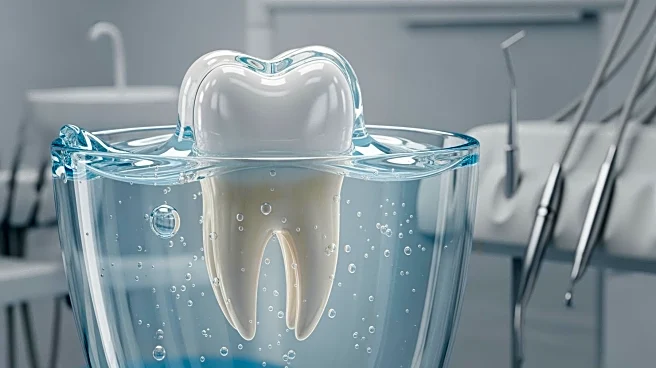What's Happening?
Researchers at the University of Nottingham have developed a gel that can regrow tooth enamel, potentially revolutionizing dental care. The gel mimics the natural process of enamel formation, filling cracks
and covering exposed dentine. This development addresses the challenge of tooth decay, which is a major health issue. The gel uses synthetic scaffolding to promote the growth of new enamel crystals, which align seamlessly with existing tooth structures. The research team has founded a start-up to further develop this technology, which has shown promising results in lab tests.
Why It's Important?
The ability to regrow tooth enamel could significantly impact dental health, reducing the prevalence of tooth decay and the need for invasive dental procedures. This innovation may lead to more accessible and cost-effective dental care, benefiting patients and the healthcare industry. The development of this gel represents a major advancement in regenerative medicine, with potential applications beyond dentistry. It could also stimulate further research into biomimetic materials and their use in medical treatments.
What's Next?
The researchers plan to conduct further tests to ensure the gel's safety and effectiveness in human mouths. If successful, this technology could be integrated into routine dental care, transforming how dentists treat enamel erosion and decay. The start-up aims to commercialize the gel, potentially leading to widespread adoption in dental practices.
Beyond the Headlines
This development could lead to ethical discussions about the accessibility of advanced dental treatments and the potential for disparities in healthcare. It may also influence regulatory policies on new medical technologies and their integration into existing healthcare systems.









